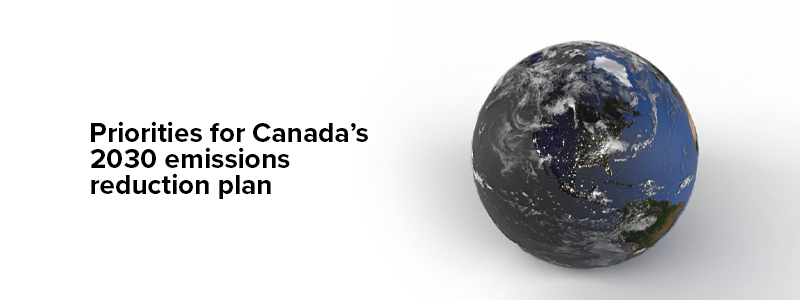Budget 2022 must spur long-term growth and prosperity
For the latest research, analysis and perspective on business and policy in Canada, sign up for our newsletter today.
Friends,
As I look outside, the snow is receding here in Ottawa, pandemic restrictions are easing, and downtown streets are busier than they have been in two years. There is reason for optimism in the early days of spring.
And yet now is also a time of upheaval and uncertainty. I’m sure you share my deep concern for the people of Ukraine and the devastating war that is ravaging their country. I am encouraged to see so many Canadians and Canadian businesses offering support for the growing humanitarian crisis in Europe.
Canada’s problems pale by comparison, but they are nevertheless real and worrisome. Despite positive data that suggest the economy is bouncing back, many people are struggling. Housing is out of reach for many families, the price of food and other necessities is rising, and we face a mountain of public debt that, in the absence of stronger economic growth, will inevitably spur calls for higher taxes.
The federal government has an opportunity with its upcoming budget to lay the foundations of a sustainable post-pandemic recovery. The Finance Minister signalled late last year that the 2022 budget would include a focus on growth and competitiveness. That’s encouraging, but we also know that there is strong pressure in Parliament for more spending. Last month, I wrote to Chrystia Freeland with five key recommendations that we at the Business Council believe are necessary to spur long-term growth, enable a successful energy transition and ensure a better future for all Canadians.
Goldy Hyder
President and CEO
Business Council of Canada
Latest Newsletters
Join us for budget talk
Calling all budget watchers: POLITICO is hosting a series of events on Wednesday, March 30, with four people who know a thing or two about building a budget:
- Robert Asselin, Senior Vice President, Policy at the Business Council of Canada
- Rebekah Young, Director, Fiscal and Provincial Economics at Scotiabank
- Sahir Khan, Executive Vice President at the Institute of Fiscal Studies and Democracy
- Jennifer Robson, Associate Professor at Carleton University.
Events kick off at 12pm ET with a Twitter Space virtual conversation followed by a real-life mixer later in the day at Ottawa’s Queen St. Fare from 4:30-5:30pm ET where you can mingle with the experts.

Contributing to America’s prosperity and resiliency
At a time when U.S. policymakers are looking to secure more resilient and reliable supply chains, a delegation of Business Council of Canada members was in Washington this week for high-level talks with industry and government. Top of the agenda: how Canada can help alleviate short-term supply challenges south of the border, and how our countries can work together to build a more prosperous and resilient North America.
This week we also launched an interactive map highlighting how Canadian trade and investment supports American jobs and communities in every state in the country.

Insights from leading business minds
If you haven’t already subscribed to it, now is the time to look up “Speaking of Business with Goldy Hyder” on your favourite podcast platform (or check it out on our website).
Recent episodes include:
- TD Bank’s Bharat Masrani discussing how to leverage Canada’s strengths in a post-pandemic world;
- Sonja Volpe of BNP Paribas explaining why hybrid workplaces will require “organized flexibility”;
And in our latest episode, John Graham of CPP Investments outlines the pension fund’s net-zero emissions strategy … and why it includes Canada’s energy sector.
Meeting emissions reduction goals
Next week the federal government is supposed to explain how it will meet its 2030 emissions reduction target. Last month we outlined four immediate and high-impact priorities that would build on the country’s existing strengths – in resource endowments, capital availability, infrastructure, and skills – and maximize Canadians’ chances of achieving our climate objectives.













